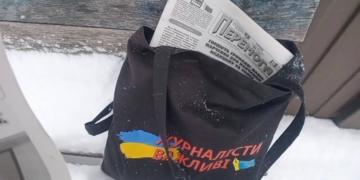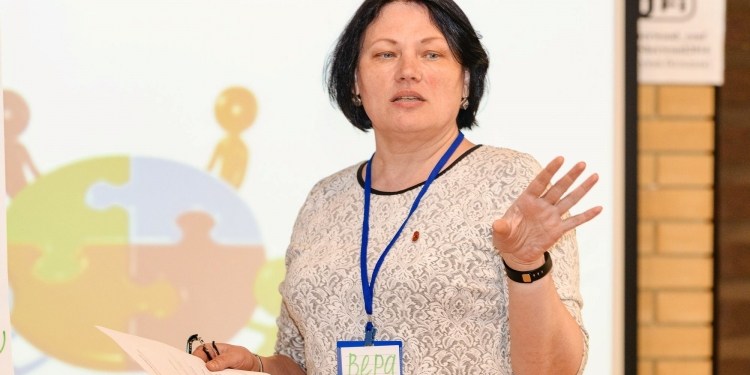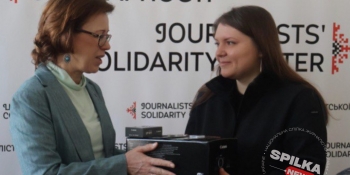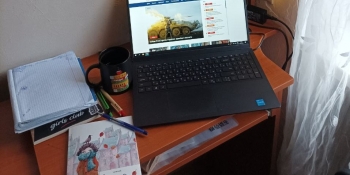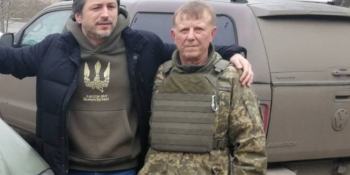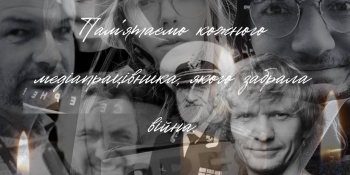Vira Iliyina comes from the Donetsk Region. Most of her life she lived in Kramatorsk. In 2014, when the hostilities began there, she along with her family remained in the city, although she lived near the very military airport. She spent four difficult months in the occupation and was indescribably happy when the city was liberated. But on February 24, 2022, the war knocked on her door for the second time.
Vira Iliyina devoted almost 30 years of her life to journalism. For a long time, she worked at the Region TV and radio company, and was a correspondent for the Technopolis publication in Kramatorsk. In recent years, she рфі headed the public relations department of the Donetsk Chamber of Commerce and Industry, and now she continues this activity in Ivano-Frankivsk, because a full-scale war forced her to flee from her native Donetsk Region.
“The war in Donetsk began in 2014. At that time, it seemed that we lived through very difficult times: there was occupation, shelling, destruction, and casualties among civilians. But back then I was a little younger and maybe I didn’t feel so stressed. I was a journalist for a weekly newspaper, and we even published a newspaper for a while, as long as it was possible, of course,” says the journalist.
Then, in 2014, Vira did not want to leave her hometown, so she learned to live without water, electricity and heating. Fortunately, four months later, Ukrainian troops finally pushed the occupiers out of Kramatorsk and gave local residents hope for a peaceful life. But, looking back, the journalist now understands well that peace was unstable.
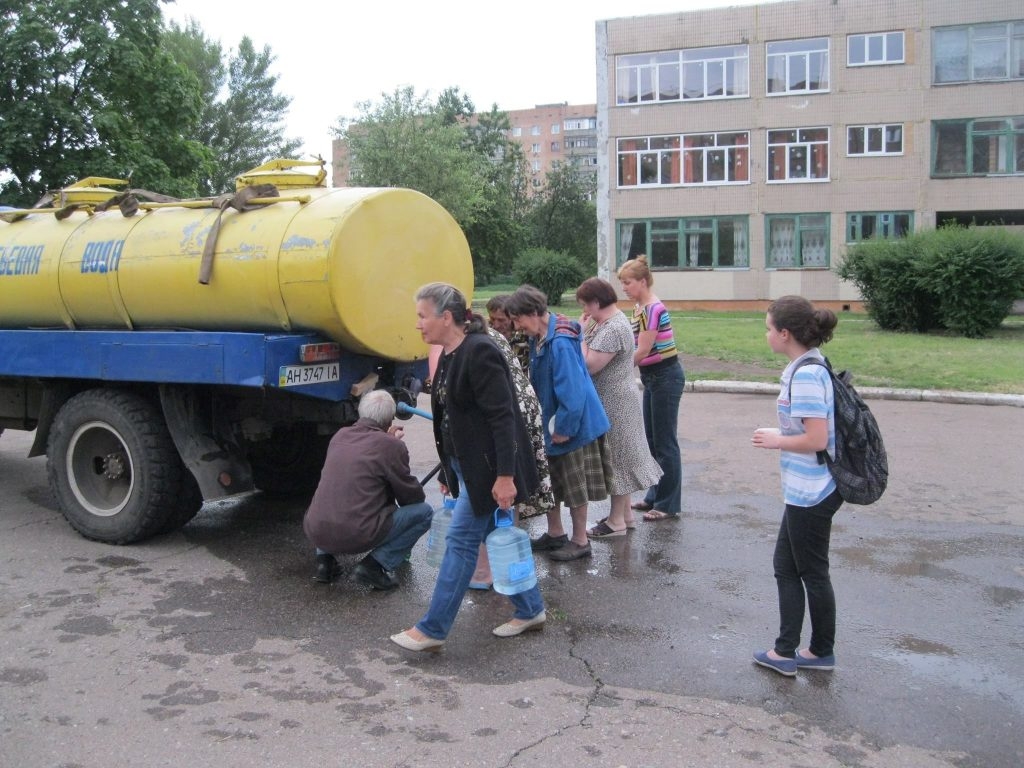
Vira’s house came under fire on the very first day. Nothing good was to be expected. So, Vira and her family decided to evacuate as soon as possible. After all, the war of 2022 was absolutely unlike the one of 2014.
“Our relatives lived in the village of Horodenka, Ivano-Frankivsk Region, so we went there. The village council gave us a small but cozy house. Local residents helped a lot. I got to know the journalists of the local newspaper, they told me how and where to apply for help. The mayor helped to set up the Internet so that I could continue working. In August, our Chamber of Industry on the basis of the Ivano-Frankivsk Chamber of Industry was implementing a project, and I took part in it. So, I decided to stay here,” said Iliyina.
The work is work, but news from my native Kramatorsk was in the foreground. April 12 became a black day for her, as well as for all of Ukraine, when enemy rockets hit the railway station: 60 were killed and hundreds more civilians were injured. They were waiting for the train. But many people continued to repeat Russian narratives even after that: they say that all this is the work of the Ukrainian side. Then Vira became interested in propaganda and how it is used by the enemy to influence her countrymen.
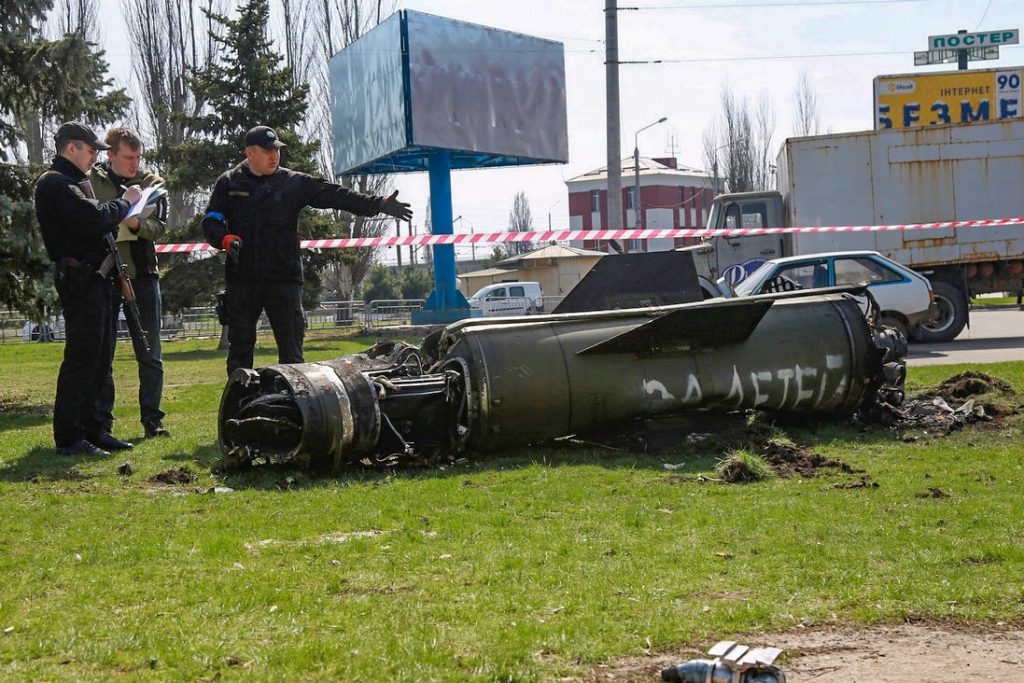
One of the methods of combating propaganda is education, Vira believes. She herself enrolled at the Kyiv-Mohyla Academy, and also actively studied the history of Ivano-Frankivsk Region. According to the journalist, in order to adapt in a new city, one must first of all find out who lives here.
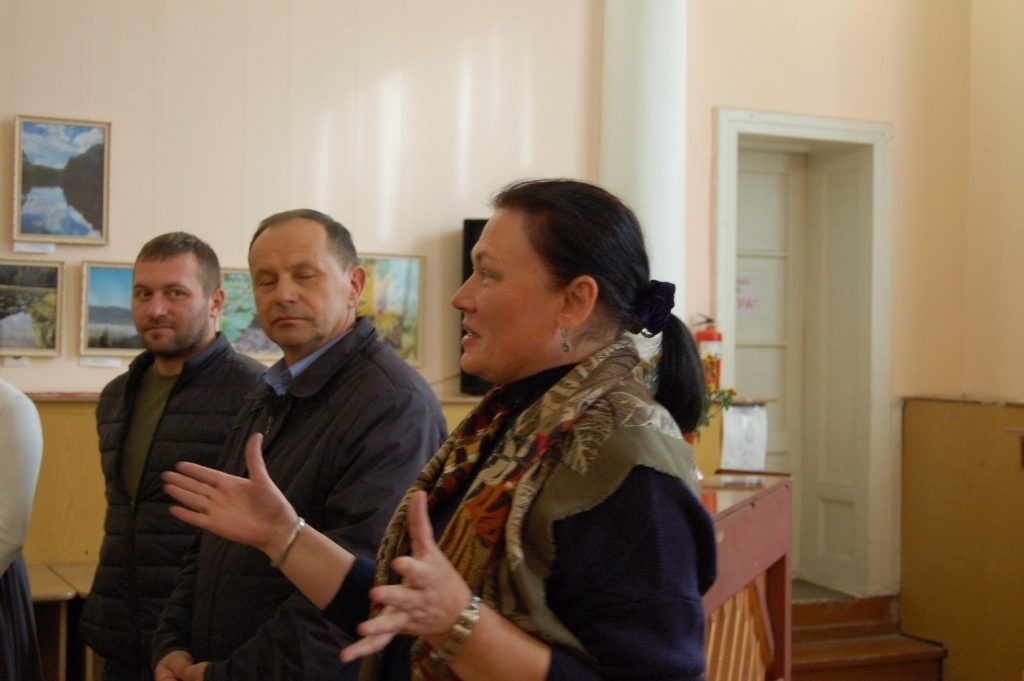
Vira admits that Ivano-Frankivsk has become her second home. But she does not lose hope to soon walk in her hometown of Kramatorsk.
JOURNALISTS ARE IMPORTANT. Stories of Life and Work in Conditions of War is a series of materials prepared by the team of the National Union of Journalists of Ukraine (NUJU) with the support of the Swedish human rights organization Civil Rights Defenders.





